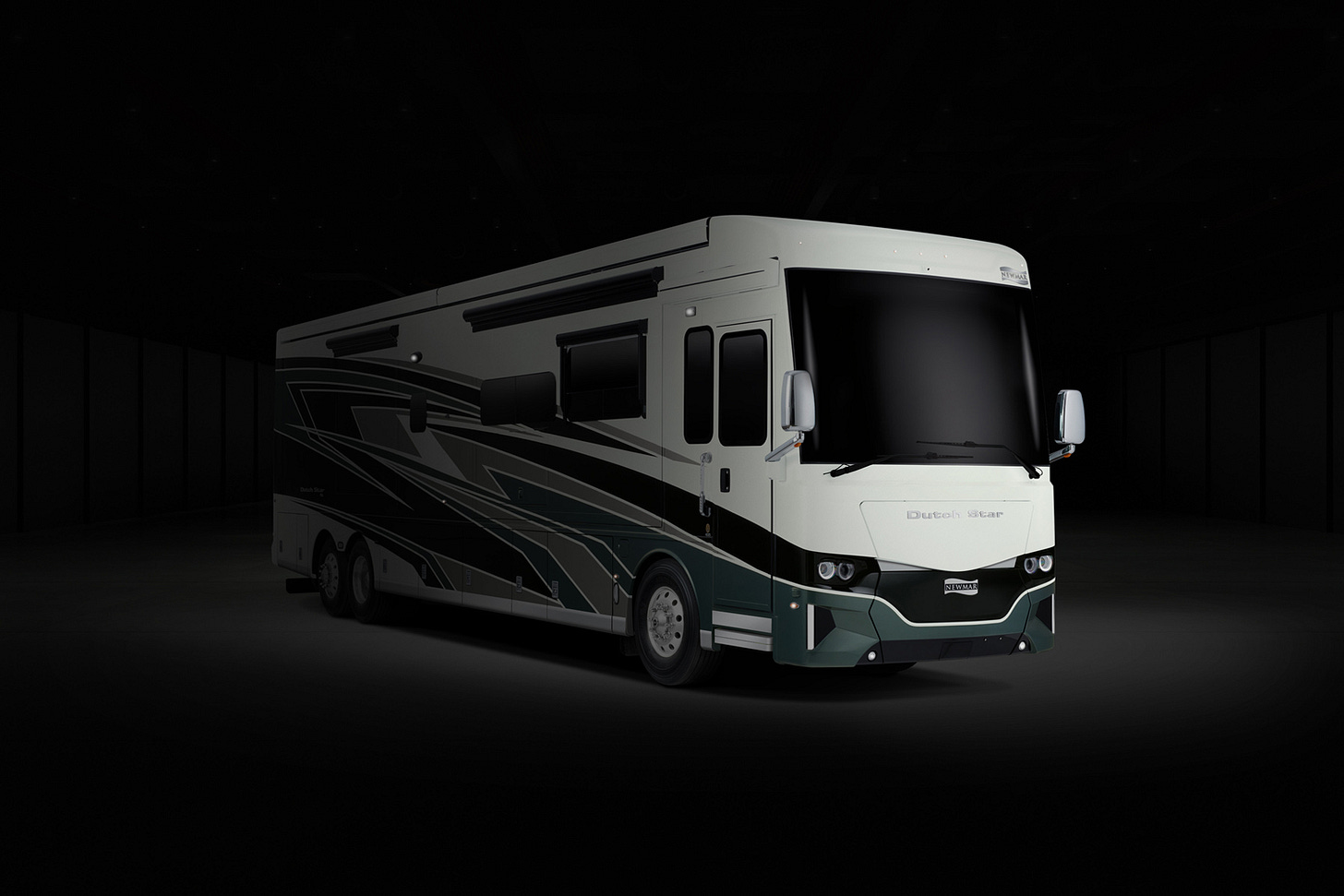New regulations could derail your freedom to roam
Is California’s push to phase out diesel Recreational Vehicles yet another control tactic masquerading as climate policy? Conveniently, as with so many other policies, it's both.
End-of-year ‘blowouts’, Black Friday sales, ‘last year’s models,’ and all manner of rebates and promotions exist to lure prospective road warriors into the showrooms of RV dealers. However, if you've been considering a new diesel motorhome as a hedge against society’s imminent collapse, you might be in for an unwelcome surprise — particularly if you live in California, Oregon, Washington, New York, Massachusetts, or Maryland.
New regulations, set to take effect in 2025, will effectively bar the sales of new diesel motorhomes as part of the push to phase out gas and diesel engines in favor of electric and hydrogen-powered vehicles.
As Citizen Watch Report recently noted:
California’s Advanced Clean Truck (ACT) regulations require manufacturers of medium and heavy-duty vehicles, including RVs, to achieve 35% sales of zero-emission vehicles (ZEVs). The problem? A ZEV-compatible RV chassis doesn’t yet exist. This rule forces dealerships to comply or risk losing the ability to sell motorhomes entirely.
For many, motorhomes are not just a recreational vehicle; they are a way of life. Diesel motorhomes, in particular, have long been favored for their reliability, range, and ability to handle heavier loads. Phasing them out before viable alternatives exist threatens the freedom and accessibility of this lifestyle. And with new diesel options off the table, demand for used diesel motorhomes may soar, potentially driving up prices on tight supply in an already competitive market.
Questioning the impact
The environmental benefits of this regulation are up for debate. Critics have raised concerns that California's Air Resources Board (CARB) may be relying too heavily on studies from China regarding the health effects of PM2.5 (fine particulate matter), research that could be flawed or not applicable to the Californian context. While diesel emissions are recognized as a source of PM2.5, CARB has also been accused of not fully accounting for other factors that contribute to PM2.5 exposure, such as wildfires. (Good luck banning those, CARB!)
Meanwhile, the push for zero-emission vehicles comes with its own set of challenges, such as the environmental cost of battery production and the need for robust energy infrastructure. Both of which have pretty large question marks surrounding them.
California’s impending regulations mark a turning point in how states address emissions, but also raise critical questions about consumer choice, affordability, and the feasibility of rapid technological transitions. For those seeking the reliability and freedom that diesel motorhomes offer, the road ahead is looking increasingly narrow.
Worse yet, the push to eliminate diesel RVs is likely less about environmental impact than it is about control and optics. The technology to replace heavy-duty diesel engines simply isn’t there, and the current approach could backfire by driving up costs, limiting choices, and undermining industries that support thousands of jobs. Meanwhile, global competitors stand to gain as Western nations hamstring their own economies under the guise of climate action.
In a 2020 op-ed for Real Clear Energy, Rupert Darwall rightly highlighted how enemies of the West use environmental activism to undermine Western interests.
“For China, climate change offers a strategic opportunity,” he wrote. “Decarbonizing the rest of the world makes China’s economy stronger – it weakens its rivals’ economies, reduces the cost of energy for its hydrocarbon-hungry economy, and sinks energy-poor India as a potential Indo-Pacific rival.”
It might be worth having CARB revisit that article; policy makers using data and analysis from foreign sources should always ask whether ulterior motives exist and whether that data has local context and applicability. And yet, here we are, on the scene of a crash at the intersection of freedom-to-roam and climate change boulevards. Looks like the things that make us quintessentially American — freedom and the open road — might need the jaws of life.



They'll do anything other than actually address the predicament. Big, flashy, virtue signalling.
This may be a first. With a long history of absurd policies, phasing out diesel RVs seems like yet another California insanity. However if this (https://substack.com/home/post/p-152056040) is true, they may be doing the right thing for a completely wrong reason. As the linked article points out, our society is based on diesel fuel. Maybe Amazon is using electric trucks, but the long haul trucks that deliver just about everything everywhere need diesel. Again, if the article is right, some time next year it may cost more in terms of energy to produce a gallon of diesel than the energy that gallon provides. With a looming threat like that, curbing recreational use of diesel makes sense if the grocery stores are to continue stocking food.